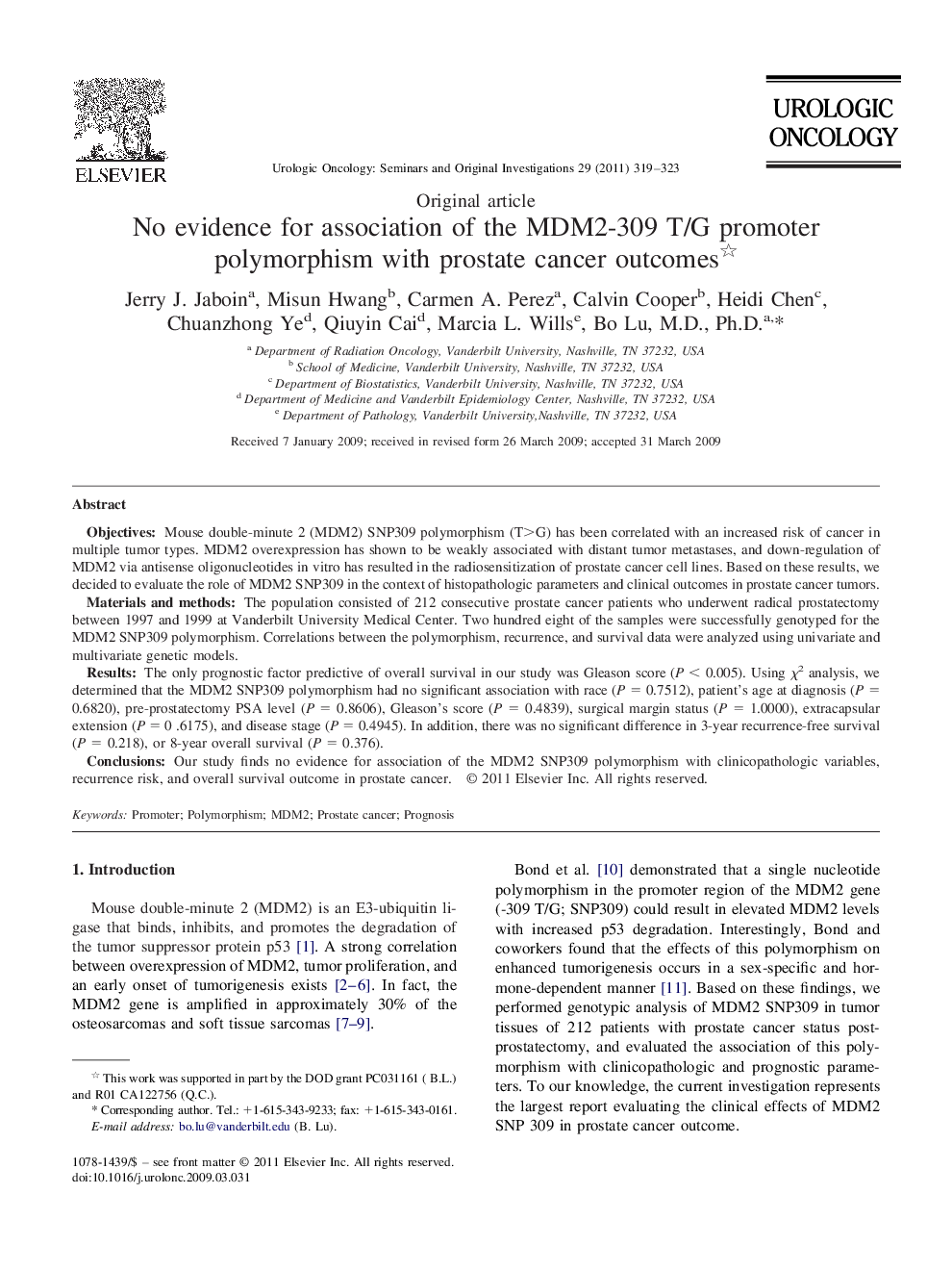| Article ID | Journal | Published Year | Pages | File Type |
|---|---|---|---|---|
| 4000616 | Urologic Oncology: Seminars and Original Investigations | 2011 | 5 Pages |
ObjectivesMouse double-minute 2 (MDM2) SNP309 polymorphism (T>G) has been correlated with an increased risk of cancer in multiple tumor types. MDM2 overexpression has shown to be weakly associated with distant tumor metastases, and down-regulation of MDM2 via antisense oligonucleotides in vitro has resulted in the radiosensitization of prostate cancer cell lines. Based on these results, we decided to evaluate the role of MDM2 SNP309 in the context of histopathologic parameters and clinical outcomes in prostate cancer tumors.Materials and methodsThe population consisted of 212 consecutive prostate cancer patients who underwent radical prostatectomy between 1997 and 1999 at Vanderbilt University Medical Center. Two hundred eight of the samples were successfully genotyped for the MDM2 SNP309 polymorphism. Correlations between the polymorphism, recurrence, and survival data were analyzed using univariate and multivariate genetic models.ResultsThe only prognostic factor predictive of overall survival in our study was Gleason score (P < 0.005). Using χ2 analysis, we determined that the MDM2 SNP309 polymorphism had no significant association with race (P = 0.7512), patient's age at diagnosis (P = 0.6820), pre-prostatectomy PSA level (P = 0.8606), Gleason's score (P = 0.4839), surgical margin status (P = 1.0000), extracapsular extension (P = 0 .6175), and disease stage (P = 0.4945). In addition, there was no significant difference in 3-year recurrence-free survival (P = 0.218), or 8-year overall survival (P = 0.376).ConclusionsOur study finds no evidence for association of the MDM2 SNP309 polymorphism with clinicopathologic variables, recurrence risk, and overall survival outcome in prostate cancer.
